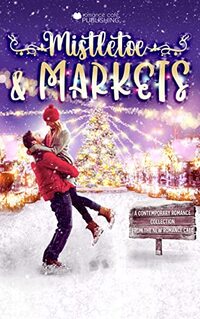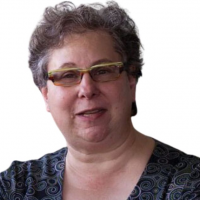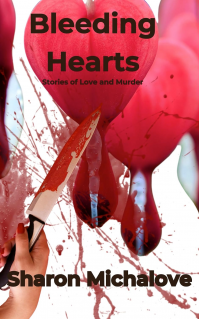Sharon Michalove Interview Published on: 02, Jan 2023
 Where did you grow up and what are some things that vastly influenced your interest in books and writing?
Where did you grow up and what are some things that vastly influenced your interest in books and writing?
I grew up in Chicago and Glenview, a suburb north of the city. My mom read to me until I was about four, when I started reading for myself. So I have always loved books and I still try to read every day. I always wanted to write, especially novels, but my first real attempts were very bad teenage poetry. Several abortive efforts at writing fiction led me to move on to writing nonfiction, mostly history, some of which was published, then a dissertation and more academic articles. Finally, in 2018, at the age of 67, I decided to give fiction one more chance, and I was finally able to start producing a body of work.
Do you remember the first piece you ever wrote? What was it about?I really don’t remember, but probably something in elementary school.
Who introduced you to the world of books?My family surrounded me with books. Dad was a teacher, so we had plenty of books in the house, as did my mom’s parents. Even my dad’s parents, whose first language was Russian, had English books available and my grandfather kept me supplied with comic books and used paperbacks. One of the stories that made a big impression on me in a used Ellery Queen or Alfred Hitchcock Mystery Magazine was called “All the Tea in China.” I remember reading at my dad’s parents’ apartment, and wouldn’t come to eat lunch until I finished it.
What four degrees have you received from the University of Illinois?I have an undergraduate degree in the Teaching of Social Studies, a master’s degree in what used to be Library Science and is now Information Science, a master’s degree in History, and a PhD in the History of Education. My dissertation was on upper-class women’s education in late medieval and early modern England.
When it comes to romantic suspense, how do you write to ensure a thoroughly chill-inducing scene?Writing suspense is always a bit tricky for me and a lot of it goes into the rewrites, when I realize that I’ve slid over that. In my first book, I have a mysterious woman show up in various places. Once you know who she is, the suspense is in wondering what she’ll do next. I like to have something absolutely awful happen when you and the character least expect it.
How would you describe your experience of working in departmental administration?My job encompassed a lot of different roles. I advised undergraduate students about their progress, courses to take, careers, and sometimes personal problems. I was the co-advisor of the departmental honors program, scheduled all the courses every semester, served on committees, and after I received my PhD, taught a course every semester. I also worked with the study abroad program. And I learned a lot about academic politics.
Who inspired the plot of your book, Dead in the Alley?Dead in the Alley was unusual for me. On a Saturday morning in the summer of 2021, I woke up with the whole thing laid out for me—characters, setting, and a pretty good idea of the plot. That had never happened before—or since. I spent that weekend getting everything down and doing research because my characters wanted to be in a setting I’d never visited. All I can say is that I’ve had readers from Michigan tell me they thought I grew up there, which is an amazing compliment.
Do you prefer writing on a notepad first or do you directly start writing on your computer?I write directly on my computer, or my phone if I have to. My once-beautiful Palmer method handwriting is mostly unreadable now.
What type of music do you usually listen to?Occasionally I listen to the pop music of my youth—1960s and 70s mostly. But my go-to music is classical. I have the radio on all the time when I’m writing, or reading.
Should food history be a larger part of our education?I think students might find it an interesting addition to the curriculum and it might give them a better appreciation for the past. When I was teaching high school, admittedly not for very long, students seemed to have trouble imagining that the people we studied were real until you get into the late nineteenth century or later. I had university students who felt that way about their high school history experiences, where a lot of the learning was names and dates. What people ate, wore, drove, the houses they lived in, the games they played all help bring the past alive.
What is an interesting piece of European history that most non-Europeans don't know about?That’s hard for me to say. Maybe the “cod war” between England and Denmark in the fifteenth century. Fishing is always interesting because it’s an economic engine for many countries and disputes over territory happen many times in history.
What are some writing tips you've borrowed from your favorite author?One of the hardest things I’ve had to work on is showing rather than telling. It’s very different from academic writing. I’ve also read a lot of classic literature and readers’ tastes and expectations have changed a lot over time. A few tips remember that your characters should show emotion, keep backstory to a minimum (hard for me), and realize that not every reader is your reader. One thing I learned from a history colleague is only a tiny percentage of your research will make it into the book, but it’s all stuff you as the author need to know.
What is the future of public libraries?I like to think that libraries will always be with us. They serve so many functions. Not only providing book and other reading materials. They offer safe places for people who don’t have many safe place to go. Tech resources are available for those who can’t afford their own computers. And librarians are amazing at helping patrons discover things they might not find doing their own computer searches. They also have community spaces for meeting, book discussions, and other services.
The future depends on whether people understand the importance of libraries and lend their support to help them thrive.
Which is the next book that you are writing? When is it due for release?I’m writing the third novel in my romantic suspense series, At the Ready, and I plan to publish it next year. I’m also writing a cozy culinary mystery that takes place in England that I hope to have traditionally published. And I’m planning a sequel to Dead in the Alley, which should come out by 2024 if not sooner.
I also have stories coming out next year in two anthologies.
Lastly, how has your experience with AllAuthor been so far? Would you recommend this platform to your author friends?I am very happy with AllAuthor as a platform, both for raising awareness of my books but also providing me with other ways for me to promote my writing, including the banners and other materials. AllAuthor was suggested to me by one of my author friends, and I do recommend it to other authors as well.
Share Sharon Michalove's interview
Born in Chicago, Sharon Michalove grew up in the suburbs. After completing her Ph.D. in the history of education, she worked in departmental administration, editorial offices, and libraries as well as teaching history. Sharon writes seasoned romance laced with mystery and suspense. She is a traveler, reader, cat lover, and bread baker.
 Tea with Austen: A Historical Romance Collection for Charity Inspired by Jane Austen (Romance Café Collection Book 38)
Genre: Historical Romance
Tea with Austen: A Historical Romance Collection for Charity Inspired by Jane Austen (Romance Café Collection Book 38)
Genre: Historical Romance
 Protect My Heart: A Protector Romance Suspense Anthology (Romance Café Collection Book 34)
Genre: Romantic Suspense
Protect My Heart: A Protector Romance Suspense Anthology (Romance Café Collection Book 34)
Genre: Romantic Suspense
 Tales From The Golden State of Mind: An Anthology of Poetry and Short Stories Celebrating Life in the Golden Years
Genre: Mystery, Literary Fiction
Tales From The Golden State of Mind: An Anthology of Poetry and Short Stories Celebrating Life in the Golden Years
Genre: Mystery, Literary Fiction
 Second Time's A Charm: A Second Chance Contemporary Romance Anthology (Romance Café Collection Book 28)
Genre: Contemporary Romance
Second Time's A Charm: A Second Chance Contemporary Romance Anthology (Romance Café Collection Book 28)
Genre: Contemporary Romance
 Mistletoe & Markets: A Christmas Market Romance Collection (Romance Café Collection Book 27)
Genre: Contemporary Romance, Romance
Mistletoe & Markets: A Christmas Market Romance Collection (Romance Café Collection Book 27)
Genre: Contemporary Romance, Romance












